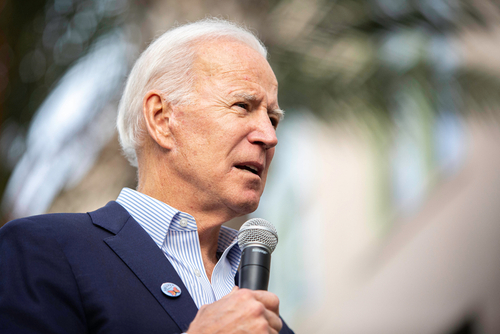
In a bold move that has ignited political discourse across the nation, Republican state lawmakers have initiated a campaign to draft bills that would potentially bar President Joe Biden from appearing on the 2024 presidential ballots in several pivotal swing states. This legislative push, which targets Georgia, Arizona, and Pennsylvania, is a direct counteraction to recent events where former President Donald Trump faced disqualification from the Colorado ballot.
The lawmakers’ strategy is not merely a tit-for-tat response but a calculated effort to highlight what they perceive as a double standard in the application of the law. They argue that if the rationale used to challenge Trump’s eligibility is valid, then by the same logic, President Biden’s actions, particularly concerning the southern border and his family’s dealings with China, should also be scrutinized under the same legal framework.
🚨BREAKING: Three Republican state lawmakers are drafting legislation to remove Joe Biden from ballots in Georgia, Arizona, and Pennsylvania – Breitbart
If Biden is excluded from the electoral options, he will face challenges in securing victory in both the Democratic primary… pic.twitter.com/us11CHDAs7
— I Meme Therefore I Am 🇺🇸 (@ImMeme0) December 22, 2023
The controversy stems from the interpretation of the United States Constitution’s 14th Amendment, specifically the clause pertaining to insurrection. The Colorado Supreme Court’s decision to invoke this clause against Trump has been met with fierce criticism from Republicans, who view the ruling as a partisan maneuver designed to undermine the democratic process.
State representatives Aaron Bernstine, Charlice Byrd, and Cory McGarr are at the forefront of this legislative endeavor. Their mission is clear: to expose what they consider the absurdity of the Colorado decision and to ensure that all candidates, regardless of party affiliation, have the opportunity to be on the ballot in every state.
BREAKING 🚨
Pennsylvania State Rep. Aaron Bernstine, Georgia State Rep. Charlice Byrd, and Arizona State Rep. Cory McGarr announce legislation to remove Joe Biden from the ballot following the Colorado Supreme Court's decision to disqualify Trump from appearing on the primary… pic.twitter.com/VJM77NMPNk— Stephanie Myers (@_StephanieMyers) December 22, 2023
The legal landscape is complex, with numerous lawsuits filed across the country challenging the eligibility of various political figures. Notably, nine active federal cases have been brought forth by a Republican presidential hopeful, targeting Trump’s eligibility based on the 14th Amendment. These cases span across multiple states, including Alaska, Arizona, Nevada, New York, and Texas, among others.
The Republican initiative is gaining traction, with political strategists like Cliff Maloney endorsing the efforts of these legislators. Maloney praises them for their courage to fight back against what he describes as a serious threat to the American Republic posed by the current administration.
The implications of these legislative efforts are far-reaching. If successful, they could set a precedent for future elections, influencing how candidates are vetted and potentially altering the political landscape. The debate over ballot eligibility is more than a legal battle; it’s a struggle for the integrity of the electoral process itself.
As the January 4, 2024, deadline approaches for the Colorado ruling to take effect, all eyes are on the unfolding drama. The Republican lawmakers’ actions are not just about the next election cycle; they are a statement about the sanctity of the voting system and the principles that underpin American democracy.
In conclusion, the unfolding events represent a critical juncture in American politics. The outcome of these legislative battles will not only determine the fate of individual candidates but also shape the future of electoral fairness and the rule of law. As the nation watches, the Republican lawmakers stand firm in their conviction to uphold the democratic values they believe are currently at risk.











